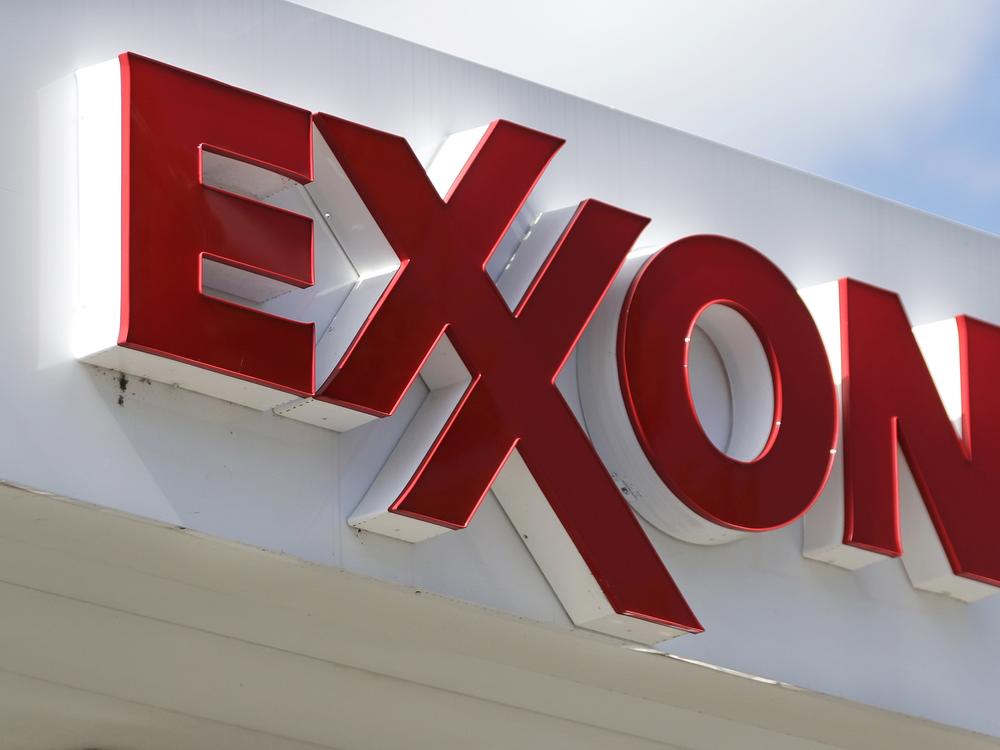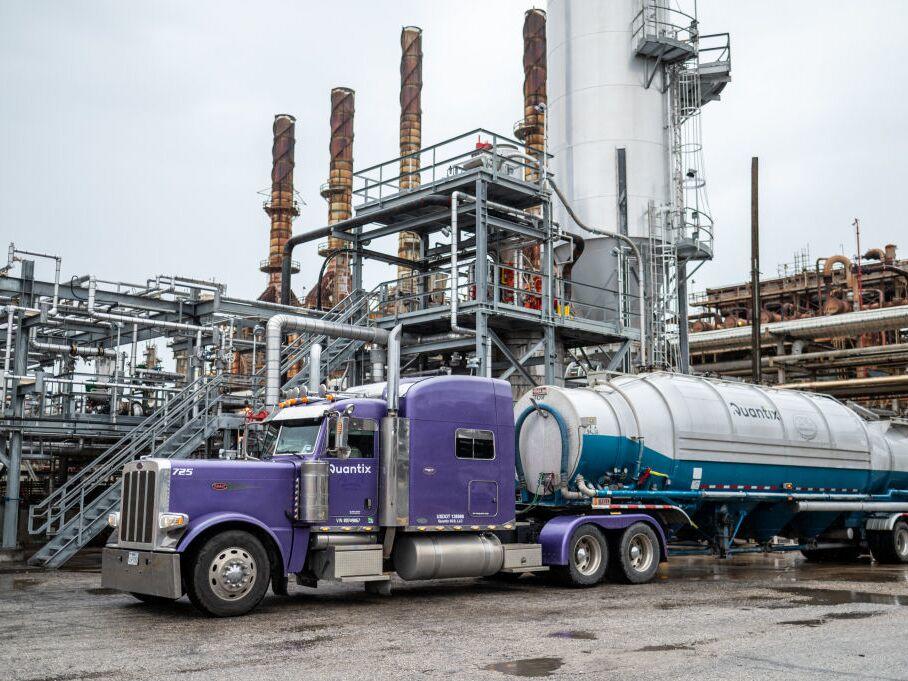Section Branding
Header Content
California sues ExxonMobil for misleading public on plastic recycling
Primary Content
California has filed a first-of-its-kind lawsuit against ExxonMobil, alleging that the company has spent decades misleading the public about the efficacy of plastic recycling.
The lawsuit alleges that ExxonMobil has known for decades that recycling plastics was technically and economically challenging and would do little to stem the enormous volume of plastic waste that ends up in the environment. Despite that knowledge, the lawsuit says, the company promoted recycling as a viable option.
“For decades, ExxonMobil has been deceiving the public to convince us that plastic recycling could solve the plastic waste and pollution crisis when they clearly knew this wasn’t possible,” California Attorney General Rob Bonta said in a statement on Monday.
By misleading the public, the suit says, ExxonMobil encouraged the excessive use of plastic, which is produced from fossil fuels. In a press conference on Monday, Bonta said California spends over $1 billion each year to manage its plastic waste problems.
The brief filed by the California attorney general's office cited reporting by NPR that found the plastics industry promoted recycling even though its officials have long known that the activity would probably never be effective on a large scale.
In a statement to NPR, ExxonMobil spokesperson Lauren Kight replied, “advanced recycling works. To date, we’ve processed more than 60 million pounds of plastic waste into usable raw materials, keeping it out of landfills.” California handles more than 5 million tons—or 10 billion pounds—of plastic each year.
In the lawsuit, Bonta’s office is asking for the creation of an Exxon-funded “abatement” fund, which could be used to address ongoing plastic pollution issues by supporting efforts like cleanups or developing new ways to break down plastics. Bonta also suggested the fund could produce a “re-education” campaign to help consumers understand what plastics are—and, just as crucially, which are not recyclable.
Mark James, an environmental law expert at the Vermont Law and Graduate School, explains that the suit also calls for a substantial shift in communication from ExxonMobil. The suit, he says, calls for “the end of the deceptive statements that have misled” the public.
“The best way to phrase what [ExxonMobile has] been doing,” says James, is simple: the company has consistently promoted “the idea that a product is recyclable, but it really is not.”
The suit comes just a day after California Governor Gavin Newsom signed a law closing a loophole in the state’s plastic bag ban, which has been in place since 2014. The loophole led to an increase in the state’s single-use plastic bag waste.
A lawsuit long in the making
California Attorney General Rob Bonta said in 2022 that his office was launching an investigation of the fossil fuel and petrochemical industries for their alleged role in worsening plastic pollution, which his office described as a global crisis.
Former industry officials have said the goal was to avoid regulations and ensure that demand for plastics, which are made from fossil fuels, kept growing. Despite years of recycling campaigns, less than 10% of plastic waste gets recycled globally, and the amount of plastic waste that's dumped in the environment continues to soar.
“Big Oil and the plastic industry’s lies are the beating heart of the plastic waste crisis, which makes California’s groundbreaking lawsuit against ExxonMobil the most important legal action to date in the global fight against plastic pollution,” Richard Wiles, president of the Center for Climate Integrity, said in a statement.
The Center for Climate Integrity published a report in February that indicated the plastics industry championed recycling mainly for its public relations value, rather than as a tool for avoiding environmental damage. "We are committed to the activities, but not committed to the results," a vice president at Exxon Chemical said during a meeting in 1994 with staff for the American Plastics Council, a trade group, according to a document uncovered by the Center for Climate Integrity.
“The basic issue…” is money
One of the biggest challenges is that making new plastic is relatively cheap. But recycling generally costs as much as or more than the material is worth, a director of environmental solutions at B.F. Goodrich explained at another industry meeting in 1992. The "basic issue," he said, "is economics."
California filed its lawsuit against Exxon months before countries are scheduled to gather for a final round of negotiations to hammer out a global treaty to end plastic pollution. Environmental groups say the talks have been hampered by fossil-fuel producing countries, which have been blocking proposals to limit the production of new plastic. Researchers say production caps are essential to rein in plastic pollution.
Exxon has said the problem of plastic waste can be solved without cutting how much plastic society uses. Exxon is among a group of companies that have been investing in what the industry calls "advanced recycling" plants. The facilities are designed to turn plastic waste, including material that can't be processed through traditional mechanical recycling, into liquids and gasses that can then be used to make new plastics and other chemical products.
"Advanced recycling is a real, proven solution that can help address plastic waste and improve recycling rates," Exxon said in a statement earlier this year to NPR.
However, critics say the technology is ineffective and harmful to the environment and human health.
The economics of plastic recycling "haven't changed at all. Not at all. And if virgin [plastic] was always cheaper and of higher quality, that's still the case today," Wiles of the Center for Climate Integrity told NPR earlier this year.
Judith Enck, president of an advocacy group Beyond Plastic, called chemical recycling “another industry public relations stunt.”
In a statement, Enck called the California litigation “the single most consequential lawsuit filed against the plastics industry for its persistent and continued lying about plastics recycling.”


